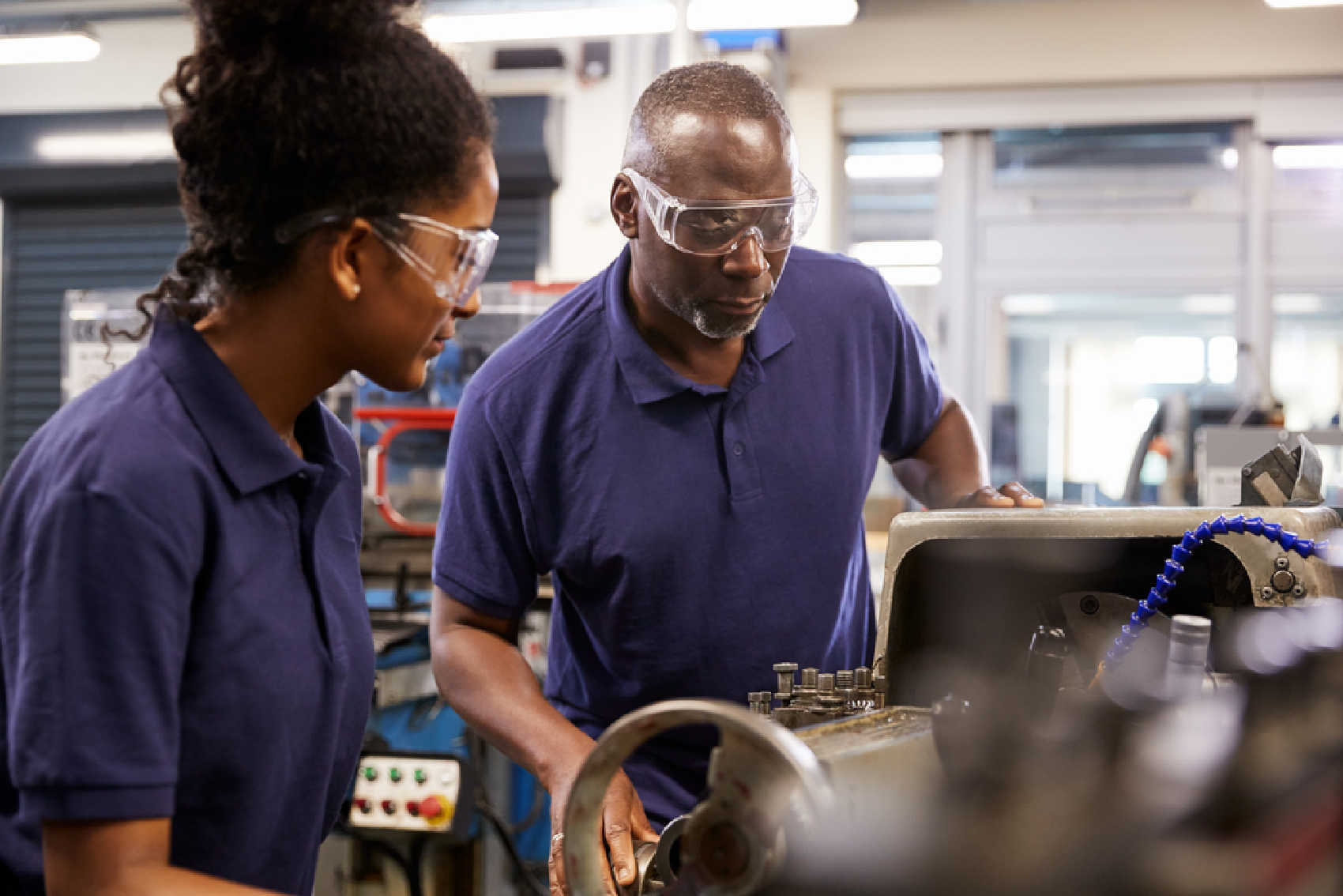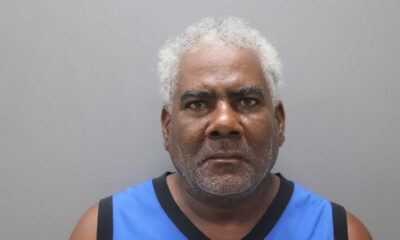Education
Remote Learning Implemented for Three St. Croix Schools Amid Weather Concerns

The Virgin Islands Department of Education has announced a shift to remote learning for three schools in the St. Croix district due to adverse weather conditions affecting the area.
Starting Monday, April 22, 2024, Pearl B. Larsen PreK-8, John H. Woodson Jr. High School, and St. Croix Central High School will conduct classes online. The decision was made to protect the safety and health of both students and staff as inclement weather poses a risk to the physical school environments.
“In response to the adverse weather conditions on St. Croix, we are taking proactive steps to ensure the ongoing safety and educational engagement of our students,” a representative from the Department of Education explained. The shift to remote learning will apply only to the aforementioned date.
To facilitate this transition, teachers will utilize digital platforms such as Schoology, Microsoft Teams, and email to distribute and discuss assignments. The Department remains committed to closely monitoring the situation and will provide further updates as conditions evolve.
Despite the move to online learning, school administrators, support staff, and maintenance crews are required to attend their respective schools as usual to manage any necessary on-site duties.
The Department extends its thanks to the community for its flexibility and cooperation during this challenging period. “Our priority is the seamless continuation of education and the well-being of our community,” the statement concluded, reflecting a collective effort to adapt and maintain educational standards under unusual circumstances.
Education
Career and Technical Education Faces Hurdles Due to Underfunding and Agency Delays, Board Reports

The Board of Career and Technical Education (CTE) is facing significant challenges in fulfilling its mandate due to chronic underfunding and delays from partner agencies. CTE Chair Joane Murphy highlighted these issues during a testimony before the Committee on Education and Workforce Development on Thursday.
Ms. Murphy stated that the board’s main responsibilities include establishing, maintaining, and supervising vocational schools. However, despite being legally empowered to do so, the board lacks the authority to enforce these provisions effectively.
A key issue is the board’s reliance on other agencies for critical aspects of its mandate. The Department of Education is tasked with developing curricula, but the CTE board has not been kept informed about curriculum development relevant to its mission. “The board has not yet received those documents for further scrutiny and ultimate approval,” Ms. Murphy explained, noting a two-year delay. This lack of enforcement capability hampers the board’s ability to fulfill its duties.
The information gap from the Education Department impedes the CTE board’s efforts to attract more participants to its programs, which aim to enhance career prospects for youth and adults. The board’s plans include restructuring school hours to integrate workforce experience in the mornings and academic classes in the afternoons. They also propose breaking down two-year programs into smaller, more manageable segments. However, without the ability to enforce its mandate, these plans remain theoretical.
Ms. Murphy emphasized the need for additional funding. Federal Perkins Act funds can no longer be used for travel expenses, making it difficult for students to attend important conferences that offer scholarships, certifications, and networking opportunities.
Ms. Murphy also criticized the V.I. Legislature for its role in the lack of progress on CTE initiatives. Former Senator Genevieve Whitaker’s Bill 34-0378, intended to establish the Career and Technical Education Training Fund, failed to advance beyond its initial committee hearing in November 2022. This fund would have provided direct financial support to the board. Committee chair Marise James pledged to revisit the proposal during Thursday’s hearing.
Despite these challenges, Ms. Murphy affirmed the CTE Board’s commitment to maximizing available resources and collaborating with stakeholders to positively impact the career and technical education landscape.
Education
U.S. Territories Highlight Colonial Educational Challenges Impacting Local Identity

At a recent gathering in the U.S. Virgin Islands, experts from various U.S. territories discussed the significant educational challenges they face due to their colonial relationship with the United States. This forum, sponsored by Right to Democracy, the Radical Education & Advocacy League, and WTJX, addressed the systemic issues hindering educational progress across these regions.
Jessica Samuel, co-founder of the Radical Education and Advocacy League in the USVI, identified three critical areas of concern: infrastructure, curriculum, and quality of life. She emphasized the bureaucratic hurdles stemming from the territories’ complicated ties with the federal government and pointed out the lingering infrastructural damages from the 2017 hurricanes that still affect students today. Samuel stressed the necessity for a curriculum that incorporates local history and culture, which she believes is currently lacking due to the territories’ “colonial predicament.”
Furthermore, Samuel highlighted the profound impact of poverty on educational success, noting a direct correlation between poverty levels and the quality of education accessible to students, particularly in the USVI where a third of children live below the poverty line.
Georgina Candal-Segurola, representing Puerto Rico, discussed corruption issues and the U.S. Department of Education’s inadequate oversight, which she feels has contributed to persistent poor conditions in education on the island. Despite federal efforts to reform, she reported local resistance, particularly in decentralizing the Puerto Rico Department of Education, has hindered progress.
Panelists from Guam and the Northern Mariana Islands voiced concerns about the U.S.-centric curriculums that overshadow local knowledge and identity. Leila Staffler, secretary of Labor in NMI, criticized how educational systems encourage familiarity with American geography over local culture, which she believes undermines local identity and sustains political status quos.
Donna L. Enguerra-Simpson from American Samoa touched on the emotional and cultural impacts of prioritizing English over native languages in educational settings. Despite similar attempts in Puerto Rico, Spanish has remained prevalent, serving as a cultural stronghold against such policies.
In conclusion, the panelists collectively called for a reassessment of the legislative frameworks governing education in the territories. Ms. Samuel advocated for clarity in educational policies and statutes to ensure they are streamlined and reflective of current best practices, aiming to enhance the quality and relevance of education in the territories.
Education
University of the Virgin Islands Honors Caroline Fawkes with Honorary Degree

During its 60th Commencement Ceremony, the University of the Virgin Islands (UVI) conferred an honorary degree upon Caroline Fawkes, renowned for her pioneering achievements in aviation and her role as the territory’s supervisor of elections. The event took place at the Albert A. Sheen Campus in St. Croix on Friday.
Caroline Fawkes made history in 1985 by becoming the first female Virgin Islander to earn her pilot’s wings and subsequently served as the first female state Army aviation officer in the National Guard. At the ceremony, she was awarded a Doctor of Humane Letters, her fourth degree from UVI, adding to her previous associate, bachelor’s, and master’s degrees earned at the same institution.
UVI President Dr. David Hall, overseeing his final commencement before retirement, commended Ms. Fawkes for her “excellence and unwavering dedication to public service.” He highlighted her leadership since 2013 in overseeing the VI election system, where she introduced several significant reforms and innovations. Dr. Hall reflected on her legacy as a “testament to dedication and determination.”
The commencement also celebrated the achievements of the class of 2024, particularly noting their contributions to filling critical gaps in the local healthcare sector, exacerbated by the pandemic. The ceremony spotlighted nursing graduates and lauded Doreen Davis, who had postponed her studies years earlier to support her children’s education at UVI. Returning to complete her journey, Ms. Davis, alongside her classmates, marked the fulfillment of her personal mission by receiving her degree.
Class speaker Nadeje Barber, who enriched her educational experience through a semester in Denmark and internships in Washington D.C., inspired her peers with a call to persevere and strive for excellence. She emphasized, “The world awaits your talents, your intentions, passion, and contributions,” encouraging her classmates to view challenges as opportunities for growth while prioritizing their health and well-being.
The ceremony was not only a celebration for the graduates but also marked a significant transition in UVI’s leadership, with President Hall handing over the reins after a tenure filled with growth and the introduction of innovative programs. As the university bids a fond farewell to President Hall, it also continues to honor the impactful contributions of alumni like Caroline Fawkes, whose illustrious career continues to inspire.
-

 Education9 months ago
Education9 months agoCTE Board Enthusiastic About New Curriculum Standards, Yet Anxious Over Apprenticeship Support
-

 Development3 weeks ago
Development3 weeks agoCosts Surge as Donoe Estates Housing Project Resumes with New Contractor
-

 Crime9 months ago
Crime9 months agoRegistered Sex Offender Detained for Illegal Firearm Possession During Annual Surveillance Drive
-

 Crime7 months ago
Crime7 months agoSt. John’s Westin Resort Scene of Armed Robbery, Prompting Heightened Police Vigilance
-

 Crime9 months ago
Crime9 months agoUnraveling the Home Invasion in St. John: Suspect Held on $100,000 Bail
-

 Crime9 months ago
Crime9 months agoU.S. Virgin Islands Alert: Megan Smith Goes Missing; Authorities Request Community Aid
-

 Videos2 years ago
Videos2 years ago2022 Gubernatorial Election: Voters Speak Out
-

 Videos2 years ago
Videos2 years agoGubernatorial Teams Celebrate St. Croix’s Bull & Bread Day





